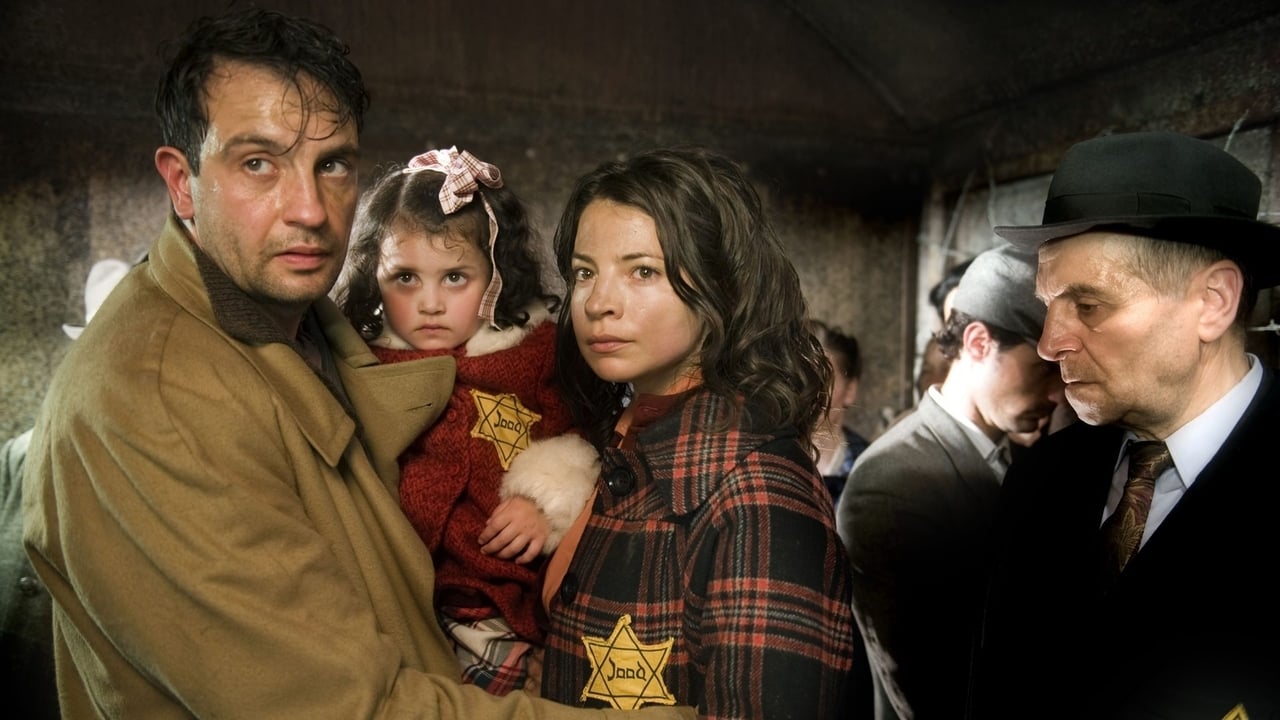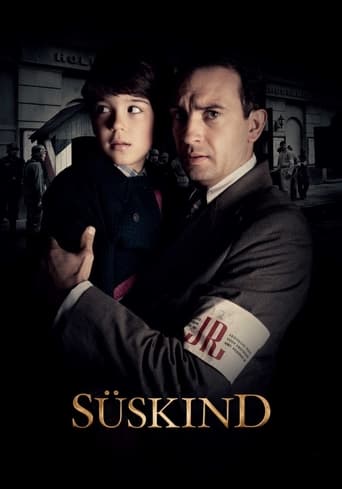Lancoor
A very feeble attempt at affirmatie action
Mischa Redfern
I didn’t really have many expectations going into the movie (good or bad), but I actually really enjoyed it. I really liked the characters and the banter between them.
Roy Hart
If you're interested in the topic at hand, you should just watch it and judge yourself because the reviews have gone very biased by people that didn't even watch it and just hate (or love) the creator. I liked it, it was well written, narrated, and directed and it was about a topic that interests me.
Dana
An old-fashioned movie made with new-fashioned finesse.
Armand
a wise manner to present a touching sensitive fragment of Shoah . a delicate, precise science to use pieces of an well-known episode, at first sigh. Süskind has the essential virtue to not be another Schindler list. and, more important, it represents a little more than a Jewish page of recent history but a testimony about hope, fight for the other case self - sacrifice and solitude in middle of war. the cast is great and the art of director to recreate a drawing of a tragedy with noble roots is admirable at whole. the movie has its specific identity and escapes from the large-gray definition - another film about Holocaust. a special note for the work of Karl Markovics.
dmichelle-610-374079
Well-acted and conveyed in a number of areas, this movie captured my attention but also disappointed me in the end. The story, based on fact, was a slight let-down, but in fairness, unless the writer were to decide to sway from the facts, there isn't anything to be done with the disappointing ending. However, the last train scene came across as lacking realism, and it took away from the impact of the piece as a whole. The viewer is frustrated with the historical tale because Suskind might have allowed his wife to try and leave with their daughter--if there would have been a way for them to escape. As he was able to save so many children, one wishes he might have saved his daughter, knowing that his work was putting his wife and child in such extreme danger! At the end, once Suskind learns his wife and daughter have been put on the trains, despite the SS Commander's "word", he chooses nobly but foolishly to go back to die, but even more ridiculous is his decision to give diamonds to the Commander. Those diamonds might have been bargaining chips for him in the camps. Obviously the viewers grow to care deeply for the characters due to their superb acting. On the other hand, the roundest and deepest character of them all is portrayed by the antagonist German Officer, whom we hate but with whom we also somehow sympathize, as well. We understand his motivations, even when we despise them.But the film, the portrayal,ultimately disappoints when Suskind walks amongst hundreds of helpless people on the train platform, and he seems to be able to pass unobstructed, magically. Here, at this crucial point, I just didn't by it. And finally, while this tale is truly not a story to pass on as it's quite important and heroic, it's a similar story to that of Schindler, and Spielberg is a tough act to follow.
Laakbaar
This is a pretty good movie. The director knows how to tell a good story and there were several times when my heart leapt into my throat. The film had character development, nuance and depth. This movie also helped me to understand much better what happened at the Hollandse Schouwburg. I hope Dutch directors continue to make movies to tell the story of what happened in the Netherlands during the Second World War, because it wasn't all Anne Frank.The theme of the Holocaust, complete with cattle cars, has been rendered many times on film. It is a familiar story to most moviegoers. Also, over the years Dutch directors have made several important films that help a Dutch movie-going audience to remember and mythologise what happened.In this version of the theme, we're shown what happened in Amsterdam. The story focuses on David Suskind, a German-Jewish refugee cum businessman who found himself in the position of having to organise the transport of Amsterdam's Jews to Westerbork and then on to their fate in the camps.The imprisonment and deportation of all these civilians was a horrific event, difficult to show on film and painful to watch. These activities could only take place if the victims weren't aware of what was going to happen to them. We're shown the minutiae of this operation and what happened when suspicions started arising. The horror of the extreme moral dilemmas involved are brought to life for the viewer.I felt this movie was too sympathetic. Please don't take this the wrong way, but saving 600 children (as wonderful and miraculous as that was) didn't make up for the systematic destruction of almost all of Amsterdam's jewry, a deeply rooted community that was in some ways the soul of Amsterdam. There is no redemption here. For anyone. Anne Frank, Suskind -- these stories do not represent what actually happened.I suppose that's the problem with Holocaust movies -- the moviegoer prefers some redemption at the end, some indication that there is a moral universe (even if that's not the case). I think the end might have been stronger by telling us more about the children who survived.For reasons I don't quite understand, many Dutch movies lapse into sappiness and melodrama. This one included. I suppose it was inevitable given the theme. I'm thinking in particular of the scene at the tracks.Perhaps someone will think of making a movie recreating pre-war Jewish life in Amsterdam? Amsterdam is a fascinating city and this is something I don't think I've ever seen on film.
Dgoudsmit
I just watched this movie at the preview in Amsterdam and I felt really touched by this rather unknown and miraculous story on the holocaust in The Netherlands. In this story members of the Amsterdam Jewish Council together with the student resistance organized the escape and hiding of 600 children from the Nazis. Although I had heard the story many times from my mother (she was actually one of the children's nurses working at the Jewish nursery and involved in smuggling the infant's and young children out of the guarded building), most particular I was very impressed by the story as depicted by director Rudolf van den Berg. Of course the storyline was partly the directors interpretation of the factual happenings, however this was not disturbing at all and made the personality of Süskind coming alive without becoming to sentimental. At the end of this two hour movie, during the movie credits, the audience was quit and stunned and many could barely keep their eyes dry which was most probably intensified by the end score beautifully performed by violinist Janine Jansen.The acting in the movie was very good. In particular Jeroen Spitsenberger gave a great performance as Walter Süskind, however Austrian actor Karl Markovic outplays him in a brilliant role as the compulsive and lonely SS-commandant Aus der Fünten. His character is convincing from his first appearance on. Were there any (minor) issues on this movie? Yes, is was not shot at the original location in Amsterdam but in Romania which is understandable since a lot has been changed but still impacted the credibility of the movie at this point somehow. Also the scene where nurse Fanny escapes deportation at the railway station looked very similar to the one in Schindler's List where Stern is released from the train. All together Süskind is, despite a few minor errors, an outstanding movie on WW2. The fact that this movie is based on a factual and miraculous story makes it even more a must seen about a story which should be told. Even after a few days, the movie made a lot of impression to me and I therefore could warmly recommend it to everyone interested in WW2 history.

